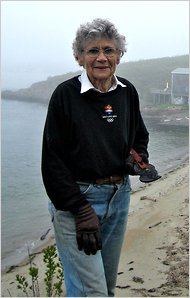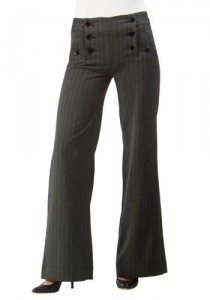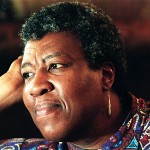Connect with Gloria!
Bring Gloria to Speak
Featured Upcoming Event
Wednesday, Oct. 2-Nov. 13, 2013 Gloria will teach a 6-week online course "9 Practical Leadership Power Tools to Advance Your Career". This is a Take The Lead event in partnership with Arizona State University Online. Participants will receive a certificate to enhance their resumes along with practical skills and understanding of power dynamics in the workplace. Don't miss this opportunity and register today!
More events here.
Buy Gloria’s Latest Book
-
-
-
Accolades

"With heartfelt encouragement ... (including strategies for including men in feminist causes), this guide is accessible to all."
~Publisher's Weekly
 "Female Writers Kicking Up Literary Dust"
"Female Writers Kicking Up Literary Dust"
~Women's e-News"Top 30 Political Mom Bloggers"
~The Stir"Gift Ideas for the Change Agents on Your List"
~Claire Mysko"Feminist Reading List"
~Deep Muck Big Rake"5 Must-Read Books for Women"
~Hello LadiesRead additional Media Buzz here.
-
Recent Posts
Recent Comments
- Gloria Feldt; An Inspiring Woman » CreativeBizHub on She’s Doing It: LisaBeth Weber Pins Pack Message Wallop
- Gloria Feldt on Stuck? Meet Jake and the Power of Letting Go to Move Forward
- Leslie on Stuck? Meet Jake and the Power of Letting Go to Move Forward
- Liz @ Creative Liberty on Sandberg: Are You Bossy or Merely Showing Leadership Skills?
- Gloria Feldt on Sandberg: Are You Bossy or Merely Showing Leadership Skills?
Categories
Listen to My Podcasts

Stacey Gualandi of The Women's Eye interviewed me about--what else--women and power.
Shelley Irwin of NPR asks me why I believe that no one is holding women back but themselves.
Suzanne Braun Levine and I discuss No Excuses on The Fiesty Side of Fifty on Blog Talk Radio.
Nicole Sanders talks to me about No Excuses on her show Radio or Not, on Progressive Talk Radio.
Dennis Lambert of KJZZ's "Morning Edition asks me why I wrote No Excuses.
Talking to Terry Hernon MacDonald about No Excuses over at Single Women Rule.
Discussing No Excuses with Joe Conason on Book Talk Radio.
Talking with Amanda Marcotte on RH Reality Check about women and power.
See Jane Do interview, encouraging women to step into positions of power and leadership – now!
Speaking with MadamaAmbi about No Excuses
Women's Relationship to Power and Leadership
Author Archives: Guest
Kate Swift Obit: The Language of Power and the Power of Language
Have you ever heard of Barbara Peabody Smith, who went by her nickname Kate? I hadn’t until I read her obituary last week. Her story is an inspiring reminder of how we can define our own terms. Defining terms by making language nonsexist changes everything–how people think and therefore how people act. Little wonder that this daughter of journalists understood the power of language. But what was groundbreaking about Smith’s life work is that she translated her understanding into the language of political power to secure gender equality laws in her home state.
Guest post by Rosalie Maggio reprinted with permission of the Women’s Media Center.
 Award winning author and creator of WMC’s “Hot Button Words” series Rosalie Maggio recalls the journalist and activist who alerted the modern women’s movement to the dangers of sexist language.
Award winning author and creator of WMC’s “Hot Button Words” series Rosalie Maggio recalls the journalist and activist who alerted the modern women’s movement to the dangers of sexist language.
Nonsexist-language pioneer Kate Swift, 87, died early Saturday morning after a brief encounter with abdominal cancer. Her generous legacy to the world includes her revolutionary influence on our language as well as her productive activism (she helped effect Connecticut’s marriage equality act, protect prochoice legislation, promote progressive candidates, protest the war on Iraq, and conserve the environment). She also leaves numerous admirers who all somehow numbered themselves among her closest and best friends.
Barbara Peabody Swift, always known as Kate, was born in 1923 to parents who were newspaper and magazine journalists, and she obtained her own journalism degree from the University of North Carolina in 1944. Thereafter, she worked as a newswriter, science writer for the Museum of Natural History, editor for the Army’s information and education department, public relations officer for the Girl Scouts of America, press liaison for the Hayden Planetarium, and, in 1965, director of the news bureau of the school of medicine at Yale.
Ma McDonough Was No Ordinary Woman
Another great guest post. All of them have made this my best WHM series ever. Today’s post is from Liz O’Donnell from Hello Ladies. I hope you enjoy reading about her great-grandmother as much as I do.
 I live in the house where I was raised. Some may think of me as a “townie,” one of those New England creatures who never leaves home. And when they look at my house, I’m sure they see a place that needs lots of work. The yard needs landscaping, the upstairs bathroom needs plumbing, and the kitchen has a gaping hole in the ceiling over the sink (see upstairs bathroom). But what they can’t see is the foundation. Not the cement that supports the frame of the house, but the history that holds me up.
I live in the house where I was raised. Some may think of me as a “townie,” one of those New England creatures who never leaves home. And when they look at my house, I’m sure they see a place that needs lots of work. The yard needs landscaping, the upstairs bathroom needs plumbing, and the kitchen has a gaping hole in the ceiling over the sink (see upstairs bathroom). But what they can’t see is the foundation. Not the cement that supports the frame of the house, but the history that holds me up.
This Women’s History Month. While I honor the women who have, should or will make the history books – Rosa Parks, Lilly Ledbetter, Hillary Clinton and so many others, I find myself thinking about my personal history and one of the women who shaped my life. The National Women’s History Project writes, “Learning about women’s tenacity, courage, and creativity throughout the centuries is a tremendous source of strength.” I know this is true.
Eighty years ago, my great-grandmother Ma McDonough bought the house where I live. At that time, women didn’t purchase property, but Ma McDonough was no ordinary woman.
My great-grandmother came from a well-to-do family in Ireland. As was the tradition then, her older brother was set to inherit the family farm and she would inherit nothing. So Ma McDonough left for Boston, rather than be dependent on someone else. She married, raised four children and somehow managed to save money. When her husband died, she moved out of the city and bought herself and three of her then adult children a new house in the suburbs. It was the Great Depression and the builder had run out of money. Ma McDonough had cash and moved in.
Indira Gandhi: World Leader or Witch?
The late Bella Abzug used to say that we would know women have made it when a mediocre woman was as likely to be promoted as a mediocre man. Similarly, we know women have made great strides as leaders when we have to acknowledge imperfections at the same time that we celebrate elevations to power. Thanks to The Daily Femme writer Sara Messelaar, whose thoughtful piece asks important questions about how women leaders–or any historical figures–should be judged. Be sure to read to the end of it and then share your thoughts!
 Just around the corner from my home here in Berlin, the tram stops at the intersection of Berliner Alley and Indira-Gandhi Street. For a long time, whenever the voice in the tram announced “Indira Gandhi Straße,” I thought: “she must have been a really great politician.” That feeling of her “greatness” quietly settled into my subconscious–the very reaction public memorials are supposed to foster in the first place. Mission Public Remembrance Accomplished. Woman’s History Month finally got me to take a real look at Gandhi’s story. I’m really glad I did, because Gandhi’s story is a complicated, unsettling, shocking chapter in women’s history.
Just around the corner from my home here in Berlin, the tram stops at the intersection of Berliner Alley and Indira-Gandhi Street. For a long time, whenever the voice in the tram announced “Indira Gandhi Straße,” I thought: “she must have been a really great politician.” That feeling of her “greatness” quietly settled into my subconscious–the very reaction public memorials are supposed to foster in the first place. Mission Public Remembrance Accomplished. Woman’s History Month finally got me to take a real look at Gandhi’s story. I’m really glad I did, because Gandhi’s story is a complicated, unsettling, shocking chapter in women’s history.
Gandhi (who is not related in any way shape or form to Mahatma, by the way) served as the Prime Minister of India for four terms—longer than any other female Prime Minister in the world. Her position as the leader of the world’s largest democracy was especially impressive, since even today women in India struggle for equal treatment. As Cristen wrote, women are so disregarded in India that they don’t even have adequate public bathrooms for them. Gandhi, however, never let any of that get in her way.
Would you expect a circus elephant to work this hard?
England’s reigning Queen Elizabeth holds a place in my history. My family bought our first television set and allowed me to stay home from school to watch her coronation. We cheered the new queen from Temple TX. For years after that, I had a recurring dream that Queen Elizabeth was coming to dinner and I had nothing prepared. I would awaken in a cold sweat after trying unsuccessfully to cobble together a dinner from leftovers I found refrigerated in my grandmother’s multicolored Pyrex dishes.
After reading this lovely piece by Suzan St. Maur, I think I would not stress so much over an unexpected visit from the queen, but rather would order in Chinese and look forward to a chance to chat with a hardworking woman who prepares her own breakfast cereal. Of course, I’d want to ask her about the upcoming royal wedding and what advice she’d give to the soon-to-be princess Kate. What would you ask the queen if she came to have dinner with you?
She’s been doing it since 1952. And she has to travel thousands of miles every year to gigs in far-flung places where she’s expected to be charming, and perform.
 An inhumanely overworked elderly circus elephant, perhaps? Nope. She’s the Queen of England.
An inhumanely overworked elderly circus elephant, perhaps? Nope. She’s the Queen of England.
Or to be more correct, she is Her Majesty Queen Elizabeth II, (titular only) Head of State of the United Kingdom of Great Britain and Northern Ireland plus 15 other Commonwealth realms. Those realms include Canada and various Caribbean nations plus Australia, New Zealand and some further nations in the south-west Pacific.
Of course the British Republicans sneer and snort, waving anti-monarchy banners and saying how dare a woman like Queen Elizabeth complain about her workload when she lives in several different palaces and doesn’t have to worry about paying bills or maxing out her credit card.
Well, I don’t care what the Republicans say: this woman, Elizabeth Alexandra Mary Windsor, to my mind is a huge inspiration to all of us who value the work ethic.
Violence Against Women: Not in MY Backyard—Er, Subway Car?
There are many ways of turning the wheels of history. Sometimes an act that seems small and obvious at the time changes the course of a group’s actions. Like the butterfly wings flutter that changes the climate halfway around the world, I believe every one on the subway car described by author and co-founder of SheWrites.com, Deborah Siegel, will forever think twice before looking away from a violent act.
 The other day I was riding the number 2 train home from the city, thinking about what I might write here in honor of Women’s History Month and feeling overpowered by current affairs. The tsunami, earthquake, nuclear disaster. Senseless murders in Libya. The gang rape of an 11-year-old girl. This month, I sense such widening circles of sorrow swirling, it’s easier, I confess, to shut off and just hold close those I love. If I pause long enough to truly let the world in, I fear I’ll be carried out on a wave, swallowed up by a sea of emotion from which there is no return. And then, there’s the tragedy going on right in our own backyards—that which lifts us out of our chairs and just kind of compels us, without thinking, to act.
The other day I was riding the number 2 train home from the city, thinking about what I might write here in honor of Women’s History Month and feeling overpowered by current affairs. The tsunami, earthquake, nuclear disaster. Senseless murders in Libya. The gang rape of an 11-year-old girl. This month, I sense such widening circles of sorrow swirling, it’s easier, I confess, to shut off and just hold close those I love. If I pause long enough to truly let the world in, I fear I’ll be carried out on a wave, swallowed up by a sea of emotion from which there is no return. And then, there’s the tragedy going on right in our own backyards—that which lifts us out of our chairs and just kind of compels us, without thinking, to act.
Here is what I mean:
On the subway seat across from me, a woman sits with a large-sized purse taking up half the seat next to her. A hulking man enters the car and sits down—partly on the seat with the bag, and partly on the woman who owns the bag. The woman gets up in a huff.
“You don’t sit on women,” she says.
“Your bag was taking up half the seat,” he says.
“You don’t sit on women!”
“Your bag was taking up half the seat!”
This seems like it’s going to go on for a while. People nearby are getting edgy. I try to catch the woman’s eye, shoot her a glance of solidarity.
An older woman sitting closest to her catches her eye instead and says, “Let it go. You’re the bigger person.”
The two women chat. I can’t hear what they’re saying, but the man is listening all the while. The first woman gets off at the next stop. The man, it seems, is not through.
“She’s the bigger person huh?” he says to the older woman.
“Oh you’ve got the wrong one. The wrong one. Don’t you start with me now,” she says.
As the subway doors close, the dozens ensue. I try not to listen but, like a rubbernecked driver who can’t look away from a car wreck, I’m compelled. The words “Your mama…” “Your wife…” “Your mama…” “You’ve got the wrong one…” pour from the pair repetitively, and in escalating tones. There’s a feeling of gas rising to the point of combustion.
And then: THUNK. Sound of woman’s head being slammed against subway wall. Next, a piercing wail.
Inspiration from Sin City
This guest post comes to us from Emmily Bristol, the creator of The Sin City Siren and The Tired Feminist. She is an award-winning writer, a community organizer and a new mom in Las Vegas.
 For Women’s History Month, I knew just who I wanted to talk about: The Westside Mothers of Las Vegas. To me, they embody the power of women and grassroots organizing.
For Women’s History Month, I knew just who I wanted to talk about: The Westside Mothers of Las Vegas. To me, they embody the power of women and grassroots organizing.
Even as Rat Pack names twinkled in the lights of the 1960s Las Vegas Strip, blacks were segregated into a section of town called the Westside and times were desperate. Among those struggling were single mothers Ruby Duncan, Rosie Lee Seals and many others. They were uneducated, poor and black. They didn’t have any experience as community organizers, but they were motivated to help their hungry children.
In just a few years, they would create an organization — Operation Life — that would grow far beyond their initial neighborhood meetings in living rooms and laundromats. Operation Life opened a community center providing healthcare, poverty programs and home-grown economic development to West Las Vegas for the first time. And they managed to bring the glittering Strip to a stand-still in one of the largest protest marches in Las Vegas Boulevard’s history.
Lois Rabinowitz: Now You Can Wear Slacks
Today’s guest post is from women’s success coach Bonnie Marcus. Bonnie takes a candid look at how attitudes towards women’s attire have often had serious consequences. Shining the light on lesser known women is what Women’s History Month is all about in my opinion. Enjoy!
 It’s hard to imagine the days when women were frowned upon for wearing slacks in public. In the 1960’s, however, this was the case. Women were expected to wear a hat, gloves, high heels, nylons and a girdle. It was commonly accepted behavior for women to dress up every day before they left the house.
It’s hard to imagine the days when women were frowned upon for wearing slacks in public. In the 1960’s, however, this was the case. Women were expected to wear a hat, gloves, high heels, nylons and a girdle. It was commonly accepted behavior for women to dress up every day before they left the house.
In the summer of 1960, Lois Rabinowitz went to traffic court in New York City to pay a speeding ticket for her boss. Lois was a 28-year-old secretary for an oil company executive. She was a newlywed and her husband of just two weeks drove her to the courthouse that morning. Lois was neatly dressed in slacks and a blouse.
Upon seeing Lois in slacks, the Magistrate of the court was outraged and sent her home.
Beyond the Headlines: How to Find Role Models with Expertise
Emily Jasper writes this guest post for 9 Ways. Emily Jasper’s blog was chosen as one of ForbesWoman’s top 100 websites for women. Here’s the bio she sent to accompany this inspiring guest post:
Known to rip apart magazines to write in the white space, I’m constantly thinking about what to write next. I write about my own observations at my blog From the Gen Y Perspective. In addition to questioning the various perspectives different from my own and those of my generation, I am passionate about filling my time with ways to connect with the world.
Women’s History Month always gets me thinking about role models. It’s been argued that finding women who are role models for our future female leaders can be a little tricky. When reports include the fact that women still make up only 3% of Fortune 500 CEOs, I see what the proverbial they are saying. Most of us look to our mothers, teachers, and community leaders if we feel like it’s hard to find someone else in the limelight who really is a role model.
I realized about a year ago, however, the women who are my role models are leaders because of their expertise and what they do with it.
Most of my role models are female journalists and writers. While they are successful at reporting, I’m really attracted to their proficiency and passion. These women take all the education and wisdom they’ve learned from being on the leading edge of news or research, and they share it with us in the telling of stories.
Octavia Butler, A Pioneer In Science Fiction
 When an interviewer asked Hugo- and Macarthur-winning novelist Octavia Butler what she thought of her books being classed as science fiction, she said, “Really, it doesn’t matter. A good story is a good story.” Here is (some of) the story of Butler’s life.
When an interviewer asked Hugo- and Macarthur-winning novelist Octavia Butler what she thought of her books being classed as science fiction, she said, “Really, it doesn’t matter. A good story is a good story.” Here is (some of) the story of Butler’s life.
Butler grew up in Pasadena, raised by a single mother who’d had to leave school after the third grade. Of her own early years, Butler has written,
At school I was always taller than the rest of my class, and because I was an only child I was comfortable with adults, but shy and awkward with other kids. I was quiet, bookish, and in spite of my size, hopeless at sports. In short, I was different. And even in the earliest grades, I got pounded for it. I learned that five- and-six-year-old kids have already figured out how to be intolerant.
But she also discovered writing at the age of 10 – she chose science fiction, she says, because “because it was so wide open. I was able to do anything and there were no walls to hem you in and there was no human condition that you were stopped from examining.” Her books – the first, Patternmaster, was published in 1976, and the last, Fledgling, came out in 2005 – did more than examine. They also reflected the deep inequalities plaguing America – and humanity as a whole — and sounded a warning for the future. Butler said her novel Parable of the Sower “calls people’s attention to the fact that so much needs to be done and obviously [there] are people who are running this country who don’t care.”
Women’s History Open Thread: Fictional Role Models
 I’m thinking a lot about literature this weekend because I’m presenting on “Women in Leadership” on a panel with former White House doctor, Connie Mariano at the Tucson Festival of Books. Fictional characters can play a big part in our lives. Are there fictional women who have been fantasy role models for you?
I’m thinking a lot about literature this weekend because I’m presenting on “Women in Leadership” on a panel with former White House doctor, Connie Mariano at the Tucson Festival of Books. Fictional characters can play a big part in our lives. Are there fictional women who have been fantasy role models for you?


